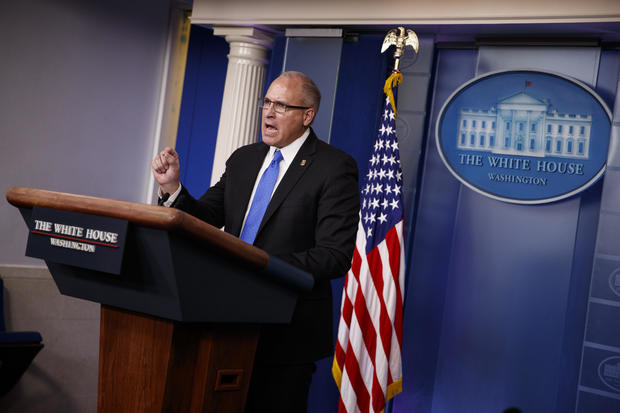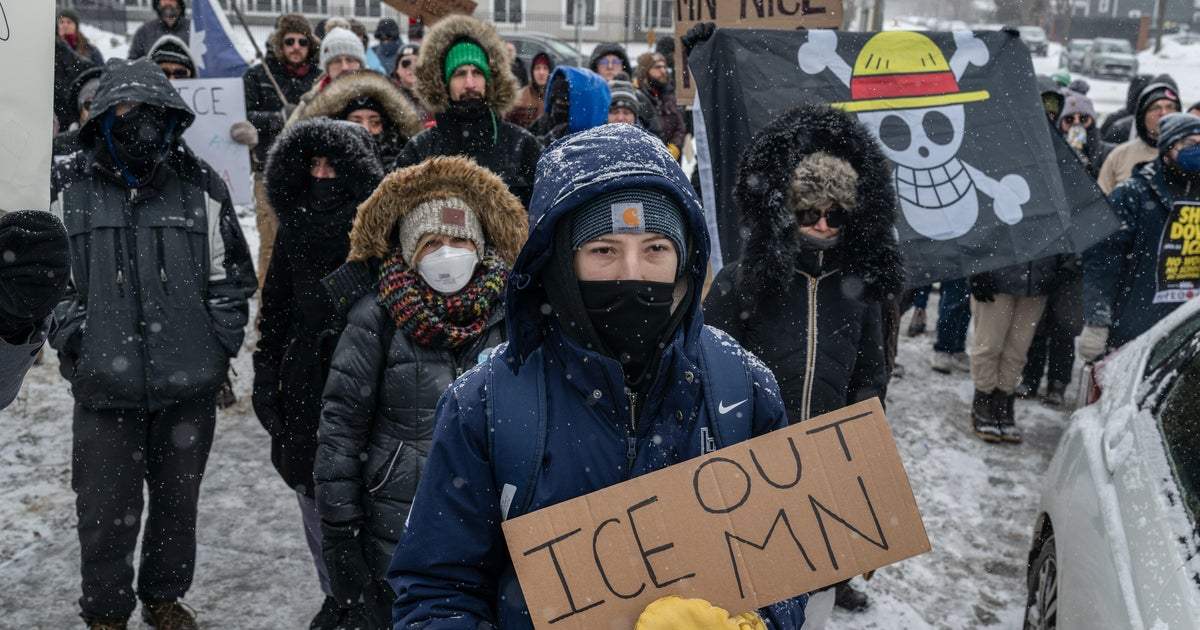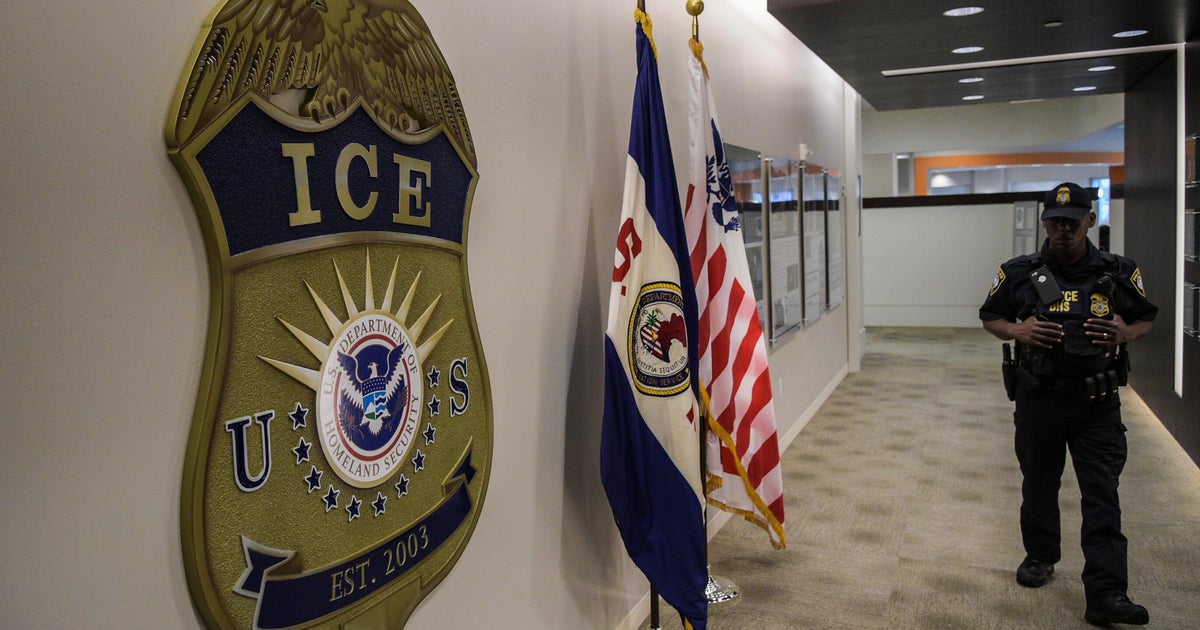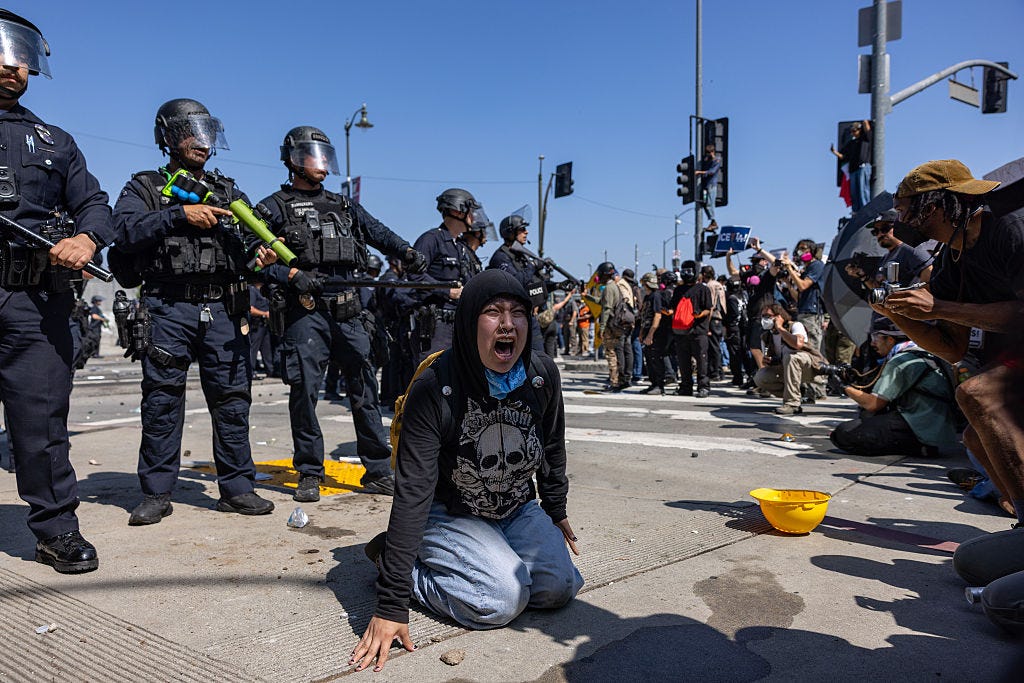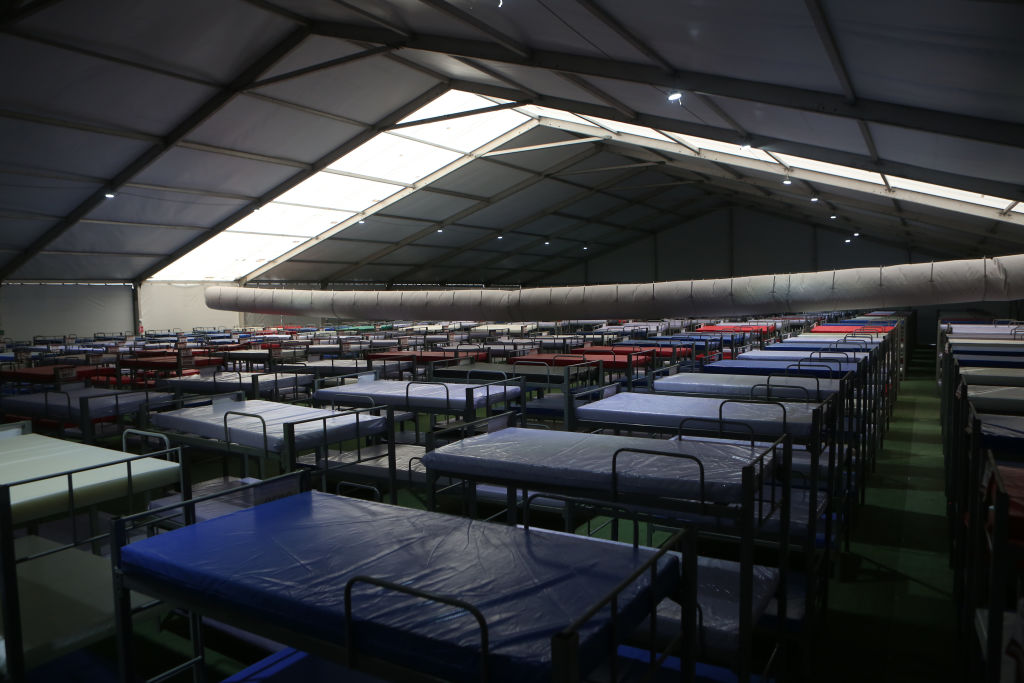U.S. apprehended nearly 1 million migrants along U.S.-Mexico border in past 12 months
Washington — President Trump's border security chief touted the fourth consecutive month of lower numbers of apprehensions along the U.S.-Mexico border, but he also revealed that arrests of border-crossing migrants approached 1 million over the past 12 months.
U.S. border officials apprehended or turned away approximately 52,000 migrants in September — a decline of more than 60% from the 13-year monthly high in May, when more than 133,000 migrants were arrested along southern border.
"This is an unprecedented achievement," Acting Customs and Border Protection Commissioner Mark Morgan told reporters during a briefing at the White House Tuesday.
Morgan nevertheless stressed that for most of the past 12 months, his officers were overwhelmed by the months-long surge of Central American families and unaccompanied children heading north that peaked in the spring. In fiscal year 2019, which ended last week, U.S. immigration authorities apprehended or turned away more than 977,000 migrants along the southern border, according to government figures.
"These are numbers [that] no immigration system in the world is designed to handle," Morgan said at the briefing.
The border security chief, one of the acting leaders of agencies in the Department of Homeland Security, said the steady drop in apprehensions in the past few months stemmed from the administration's implementation of aggressive border policies, as well as recent immigration agreements with Mexico and countries in Central America, where most U.S.-bound migrants have been coming from or transiting through to reach the U.S. southern border.
Morgan was effusive in his praise for the Mexican government's efforts to help the Trump administration deter migrants.
He pointed directly to the Migrant Protection Protocols (MPP), which he said has now required more than 51,000 asylum seekers to wait in dangerous Mexican border cities for the duration of their court proceedings in the U.S. The policy has been expanded in recent months with the consent of the Mexican government, which Mr. Trump threatened with tariffs earlier in the summer unless it did more to curb migration flows within its territory.
Attorneys, aid workers and even current asylum officers have strongly condemned the program, saying it runs contrary to America's longstanding role as a safe haven for people seeking refuge. A CBS News series in the summer detailed how the program has placed vulnerable migrants — including families with small children and single women — in precarious situations during their prolonged stays in areas of northern Mexico with high levels of insecurity and where the chances of finding American lawyers are slim.
Asked by CBS News about these conditions, Morgan said the Mexican government, nongovernmental organizations and the United Nations are helping migrants who are returned to Mexico by the U.S. He noted that many migrants placed in the program understand they will not get a "free ride" into the U.S. and opt to return to their home countries.
"The majority of them know they're economic migrants and they're not going to qualify for asylum," he said. "Now that the message is getting out, that we are, through this administration's efforts, we're closing those loopholes."
In addition to supporting the MPP program, the Mexican government has bolstered its immigration enforcement and deployed thousands of newly created National Guards units to intercept migrants, especially at its southern border with Guatemala.
"Mexico's continued support of MPP and enhanced border security efforts along their southern border, in the interior and along the U.S.-Mexico border is something really for the history books," Morgan said.
The border security chief also cited the "asylum cooperation agreements" the U.S. has reached with all three countries in Central America's Northern Triangle: El Salvador, Guatemala and Honduras. The series of diplomatic agreements, which have yet to be implemented, would allow the U.S. to reroute asylum seekers from across the world to these countries and have them seek refuge there — despite the rampant violence and poverty in many parts of this region.
Morgan said the administration is also preparing this week to fully enforce a sweeping regulation allowed by the Supreme Court that would render most migrants who travel through a third country to reach the U.S. ineligible for asylum.
Although designed to stem the flow of Central American migrants journeying north, the regulation also would affect people from other parts of the world trying to reach the U.S. through Mexico, including Cubans, Venezuelans, Brazilians and central Africans, who have traveled to the U.S.-Mexico border in higher numbers this year.
Weijia Jiang contributed reporting.

